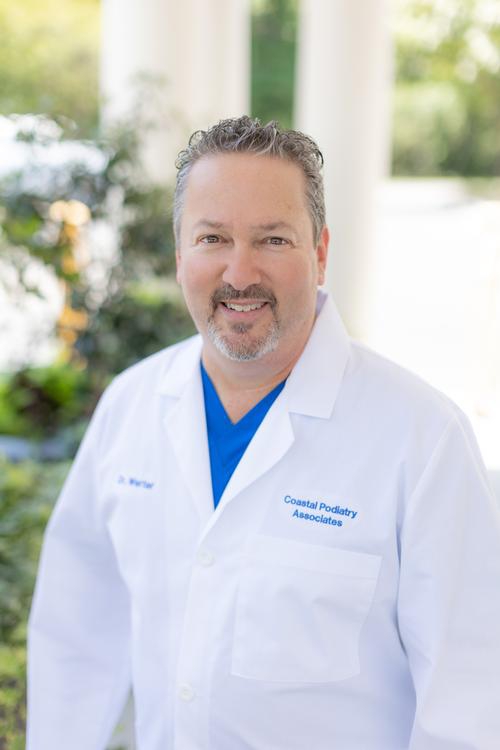Metatarsalgia is metatarsal pain and is known as a stone bruise. This pain is right in the ball of the foot and sometimes spreads to the toes. This type of condition is not as serious nor a permanent problem, but if you injuries yourself and a popping or grinding noise follows, you should speak to one of our experienced South Carolina podiatrists.
Can a Podiatrist Heal Metatarsalgia Pain?
Yes! Our doctors here at Coastal Podiatry Associates are board-certified to treat metatarsalgia. With metatarsalgia being one of the most common conditions we treat, our experienced team is here to help. After carefully listening to your concerns, our podiatrist will conduct a thorough exam of your feet. They will evaluate your medical history and may use image testing such as X-rays or MRIs to correctly diagnose the condition that brought you in.
being one of the most common conditions we treat, our experienced team is here to help. After carefully listening to your concerns, our podiatrist will conduct a thorough exam of your feet. They will evaluate your medical history and may use image testing such as X-rays or MRIs to correctly diagnose the condition that brought you in.
We understand metatarsalgia pain can bring discomfort and we are here to create a specialized treatment plan just for you. We strive for patients to be pain-free with long-lasting results.
What is Metatarsalgia?
Metatarsalgia is a common foot condition that causes pain and inflammation in the ball of the foot. This condition is not a sign of a serious or permanent problem, but if there is persistent pain or torn ligaments, it's recommended to speak with a podiatrist as soon as possible.
Metatarsalgia Causes
- High-impact activities: Running, jumping, or repetitive foot movements
- Improper footwear: Wearing shoes that have little to no support or cushioning
- Medical conditions: Arthritis, gout, or diabetes
- Foot structure: Those with high arches, flat feet, or long second toes are more prone
There are several more metatarsalgia causes, but be cautious of the following symptoms to understand when to seek out one of our podiatrists.
Metatarsalgia Symptoms
- Sharp pain or burning in the ball of your foot
- Pain that worsens with activity
- Tingling or numbness
- A sensation of walking with a rock in your shoe
Metatarsalgia Treatment Options
- Rest
- Custom orthotics
- Changes in footwear
- Physical therapy
- Medications
- Surgery (severe cases only)
Frequently Asked Questions About Metatarsalgia
-
How long does metatarsalgia take to heal?
- Recovery time depends on the cause and severity, but most patients feel relief within a few weeks once proper footwear, rest, or orthotics are used. Chronic cases may take several months of consistent care.
-
What shoes are best for Metatarsalgia?
- Look for supportive shoes with cushioned soles, wide toe boxes, and low heels. Avoid thin-soled or narrow shoes that add pressure to the ball of your foot.





